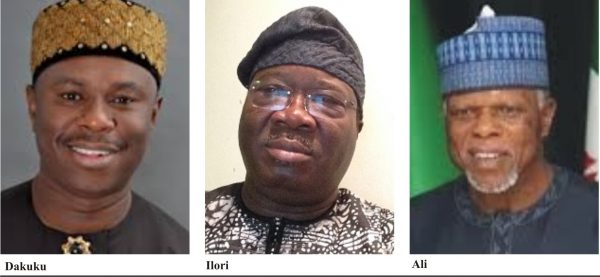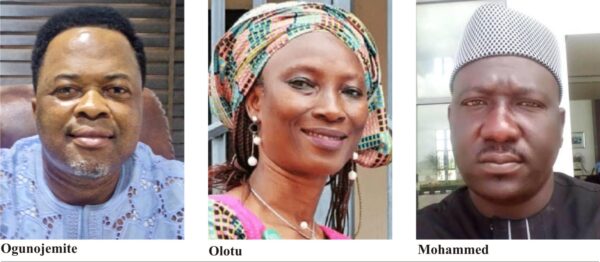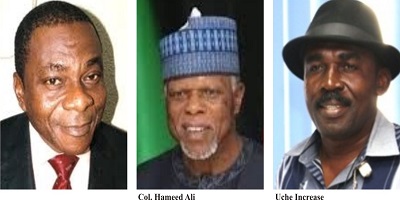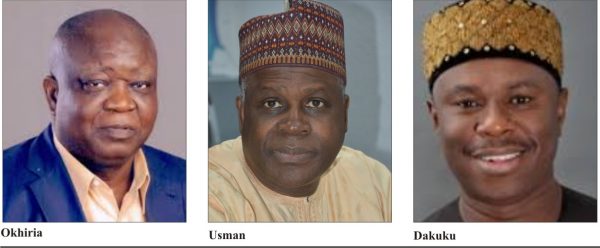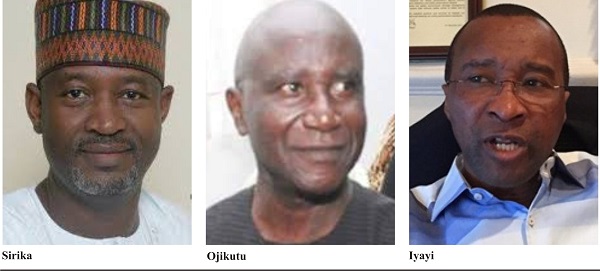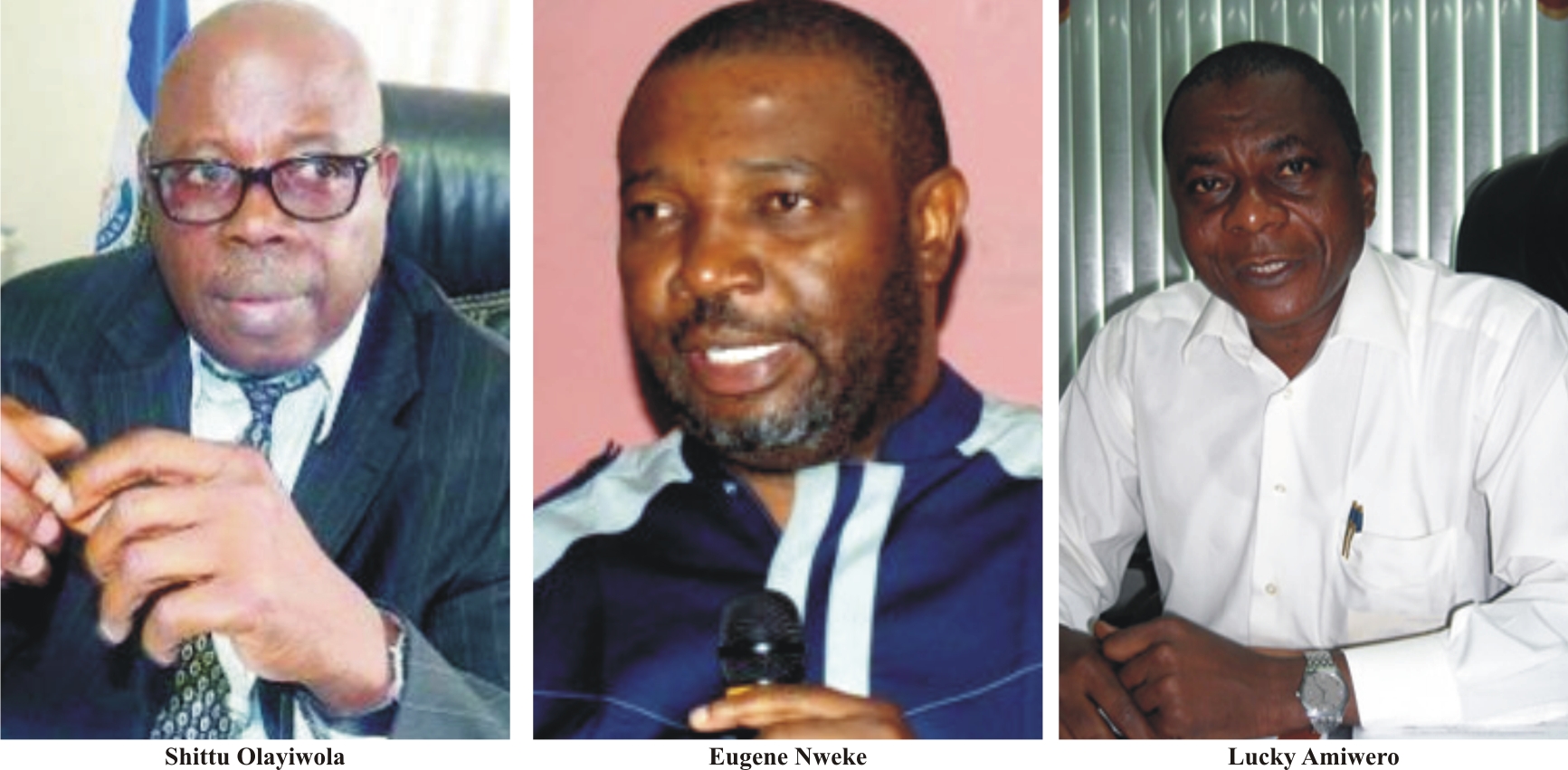Ship Acquisition: Customs, NIMASA, Operators Vary On FG Policies
By Kenneth Jukpor
The absence of locally owned ships
The absence of locally owned ships operating in international waters has affected the sea time training for Nigerian seafarers, and seen the indigenous ship-owners lose out in the massive earnings that could have been accrued from crude oil affreightment.
Ship-owners have repeatedly called on the Federal Government to put policies in place to increase the nation’s ship owning capacity and they have sound reasons to be dissatisfied with the shipping policies available in Nigeria.
As a Nigerian, if you buy a ship you pay 5% Custom duty before undergoing the rigorous process of registration; meanwhile, if you are a British, Greek or Angolan and you buy a ship and flag it in your country; it is zero duty. In these nations, the government also gives the ship-owner tax holiday because they know that he or she must have borrowed heavily to finance the vessel. The government would also provide several other fiscal incentives to make it easy for the ship-owner to operate and repay your loan.
This challenge was one of the factors that led the Singaporean shipping firm; Pacific International Lines (PIL) pull out of the much-celebrated agreement to establish a national fleet. PIL pulled out because the Nigerian fiscal policy does not make an environment where fleet of that nature will be competitive in global space.
Consequently, a Presidential committee known as the Nigerian Fleet Implementation Committee was set up to address the issues and they identified the factors militating against the establishment of any national fleet, noting that it had to do with the missing fiscal incentives that other nations have adopted.
Speaking with the League of Maritime Editors and Publishers (LOMEP) recently, the Director General of the Nigerian Maritime Administration and Safety Agency (NIMASA) Dr. Dakuku Peterside revealed that the agency was engaging the Central Bank of Nigeria (CBN) to provide single digit interest rates that would support ship acquisition.
“We know that the Cabotage Vessel Finance Fund (CVFF) isn’t enough so we are also engaging the Central Bank of Nigeria to ensure that there is single digit interest rate facility so that indigenous operators can access money at competitive interest rates to acquire assets” he said.
The NIMASA boss also revealed that the agency was engaging the Nigeria Customs Service (NCS) and the Federal Government to create a special tariff for Nigerians bringing in ships to be registered in the country as well as those bringing in spare parts.
“We want Nigerians to bring in vessels and be competitive in the global scene. We are reviewing the ship registry of Nigeria so that our ship registry would be business friendly and also compete internationally” he added.
Meanwhile, despite the popular complaints by shipping experts that the Federal Government’s fiscal policy to collect duties on vessel imports kills the economy, Nigeria Customs Service (NCS) has a novel interpretation on that policy.
DC Dera Nnadi, the Deputy Comptroller, Enforcement at Tin Can Island Customs Command revealed this while speaking withMMS Plus at a recent workshop organized by the Manufacturers Association of Nigeria (MAN) in Lagos.
Nnadi maintained that the 5% collection of Customs duty on ships coming to fly the Nigerian flag and do business in Nigeria wasn’t really a bad policy.
Explaining his side of the prism, he said; “It is fair in the sense that if you were to use N2billion to buy a ship from another country. If you can send our hard-earned N2billion to another country and you were given an opportunity to rent at N200million and encouraged to invest liquid cash of N1.8billion into the Nigerian economy, why not invest the N1.8billion into the development of a ship-building facility in Nigeria?”
Rather than transfer Nigeria’s money outside to buy an already made item, he argued that temporary import would allow such colossal fund be retained in the country and used to develop the economy.
“It is important to note that Customs didn’t develop this policy. We only implement it as a fiscal policy of the government but then I think there is a little misconception here about what waiver fiat is all about. It is not totally true that when you are bringing a ship under TI (Temporary Importation) it is almost free as has been expressed here”
“If they calculate the duty you would have paid on that item assuming it is being brought in for home use and not for temporary importation, you are supposed to deposit that same amount in a bank as bond and then present the bond certificate to the Customs and on the basis of that, you are granted Temporary Importation waiver and this is for a specified renewable period” he added.
He advised ship-owners to urge the government to invest the duty Customs collected into the development of the nation’s shipping sector.
“You should also note that the money Customs collect doesn’t go to the Customs. It goes to the Treasury Single Account (TSA) and Customs get a fraction from the money generated. Customs doesn’t just collect the monies on behalf of the government but on behalf of every Nigerian and every sector of the nation’s economy. There are so many things Customs duty is used for; so people should stop seeing it like Customs is trying to stifle this aspect of the economy. The Service operates on budget like many other government agencies too” he said.
The Customs boss drew an analogy to the crude oil exploration sector.
“Let’s look at an instance where someone who wants to drill for crude oil in a particular location. He buys the rig permanently and after exploration and drilling for a period of two or three years what would he do with the rig? A rig is so expensive and it would have been better to hire the rig for the period and return it afterwards. By the way, while it was drilling, you would have deposited the equivalent as bond in a bank. The bank would use that money to trade; it would generate more money to keep bankers employed and keep the economy healthy. Look at this issue from a holistic view and you would notice that it would benefit various sectors of the nation’s economy” he said.
Speaking from the standpoint of a ship-owner, the Public Relations Officer of the Nigerian Indigenous Ship-owners Association (NISA), Engr. Emmanuel Ilori told MMS Plus that the issue of Customs duty on vessels and spare parts were crucial problems that should be addressed with provision of incentives.
“If one has to bring in a vessel or spare parts to Nigeria, why should the person be paying additional tax? These are the things that make it difficult for the Nigerian ship owners to repair their vessels in the country or acquire them. In some other countries ship owners are not made to pay duty on spare parts meant for their ships”
“These are some of the incentives that should be afforded to ship owners to enable them manage and maintain the vessels. NIMASA is looking into some of these issues as part of efforts to support Nigerian ship owners. Until we address some of these fundamental problems that affect shipping in the country, it will continue to be a mirage to see the situation change” he noted.
The problem of inadequate indigenous ship owners would persist if some of these problems are not addressed.
If PIL looked at the Nigerian environment that the indigenous operators are facing and said the environment wasn’t conducive to support a Nigerian shipping company, then there is need to address the concerns.
Some of the problems highlighted are already known by many industry players. There are no vessels to absorb the cadets and the few vessels have no jobs. Are we going to throw these cadets into ships that do not have jobs? How would they be able to be provided for? Until we get the Nigerian maritime sector moving again, professionally and competently, this problem would remain with us.
Not much has been heard of the Nigerian Fleet Implementation Committee, headed by the Executive Secretary of Nigerian Shippers’ Council (NSC) Mr. Hassan Bello. The committee is said to have engaged the government up to the level of the Vice President and the Minister of National Planning, but the fruits of these deliberations are yet to be seen.

